Sainsbury's halts talks on Nisa buyout
Supermarket is waiting to see outcome of review of Tesco-Booker deal
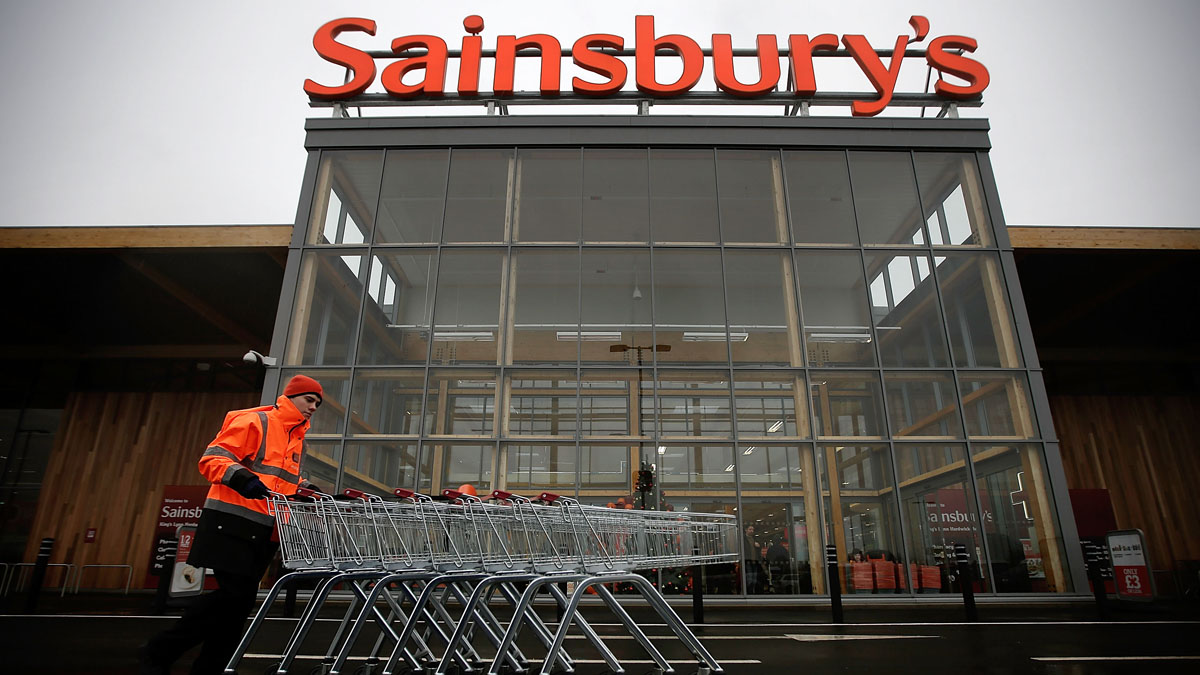
A free daily email with the biggest news stories of the day – and the best features from TheWeek.com
You are now subscribed
Your newsletter sign-up was successful
Sainsbury's disappints markets with sharp profit slide
9 November
Markets reacted badly to Sainsbury's latest results this morning, trading its shares down much further than the FTSE 100's unexpectedly shallow fall.
Shares in the UK's second-largest supermarket chain were down almost 5.5 per cent at 242p in the run-up to lunchtime, the lowest they've been since mid-October but roughly back to where they started the year.
The Week
Escape your echo chamber. Get the facts behind the news, plus analysis from multiple perspectives.

Sign up for The Week's Free Newsletters
From our morning news briefing to a weekly Good News Newsletter, get the best of The Week delivered directly to your inbox.
From our morning news briefing to a weekly Good News Newsletter, get the best of The Week delivered directly to your inbox.
In contrast, the UK's equity benchmark fell 0.6 per cent, despite the destabilising effect of the shock US election win for Donald Trump.
Sainsbury's was being hit after revealing pre-tax profit for the first-half of the year fell around ten per cent to £372m, while underlying earnings that strip out a number of non-recurring costs dropped by the same margin to £277m, says the Financial Times.
Sales were down around one per cent on a like-for-like basis for the six months to the end of September, ahead of the rate of food price deflation. Chief executive Mike Coupe told the BBC that reflects continued increases in volume sales. He also said the company would meet the market's full-year profit expectation of £573m, says Reuters.
Investor sentiment seems to reflect the continued squeeze on margins, which Couple warned would get worse. The Brexit vote will have "uncertain" implications for prices and will probably mean profits will be lower, he said.
A free daily email with the biggest news stories of the day – and the best features from TheWeek.com
Perhaps most critically for shareholders, the company lowered its dividend payout from 4p per share to 3.6p.
Within the results, Sainsbury's revealed it has increased staff wages by four per cent for the second consecutive year to meet the cost of the new national living wage and said its pension deficit has more than doubled to £1.06bn.
It also confirmed plans to "open 30 Argos digital stores and create a further 30 Argos digital collection points in our supermarkets" by Christmas.
Sainsbury's to spend £175m plugging pension deficits
7 November
Sainsbury's is expected to reveal that the cost of funding shortfalls in its pension funds will surge to £175m this year.
The supermarket publishes a trading update on Wednesday and experts believe it will announce it is spending £125m to plug the black hole in its main pension scheme, says The Times.
It is also predicted to pump another £50m into the pension scheme it inherited from Argos-owner Home Retail Group following its buyout this year.
Sainsbury's results will reveal the outcome of a triennial review of its pension fund, which could lead to the annual bill to plug the pension funding gap rising in the years to come.
That is before the worst ravages of current monetary policy are factored in: the firm is also forecast to up its assumed pension deficit from £389m in March to between £900m and £1.3bn.
In this respect it is only the latest in a long line of companies standing as testament to the effect of a fall in government bond yields in recent months.
Drops in the yield offered by gilts hit the long-term returns that pension funds rely on, widening a shortfall against promised future payouts.
Already this reporting season Lloyds has announced its pension fund swung from a surplus of £430m to a net deficit of £740m, while Tesco's black hole has more than doubled to £5.6bn.
Sainsbury's shares were trading flat this afternoon at a shade under 225p, trailing a rise of 1.5 per cent on the wider FTSE 100.
Sainsbury's shares tumble as sales fall again
28 September
Sainsbury's shares have fallen sharply today after reporting a second consecutive fall in quarterly sales.
Like-for-like sales, which compare takings at stores open more than one year, dropped 1.1 per cent for the three months to 24 September - the previous quarter saw a 0.8 per cent drop - while total sales fell by a more modest 0.4 per cent.
By mid-afternoon, Sainsbury's share price had slumped 3.8 per cent, although the wider FTSE 100 had gained 0.9 per cent.
City analysts had expected the figures to be better and are concerned the grocer appears "to be under more pressure in comparison with Morrisons and Tesco", says The Guardian.
That's a far cry from last year, when Sainsbury's consistently outperformed its "big four" peers and boosted market share, taking second place in the grocery sector from Asda.
Since then, it has switched its pricing strategy away from multibuy promotions to lower prices on staple, own-brand items. John Ibbotson, of Retail Vision, told the BBC the move had proved "distinctly underwhelming".
But Sainsbury's boss Mike Coupe insisted the group was continuing to make "progress" and that it is seeing an increase in sales volumes and customer footfall, despite a bitter price war in the sector.
Food price deflation has persisted for the past two years as established supermarkets fight to compete with discounters Aldi and Lidl. In its results this week, Aldi proved it was not immune to the effects of the price war, reporting a 1.8 per cent dip in profits.
Sainsbury's did report upbeat sales figures for its newly acquired Home Retail Group business, which includes Argos, with takings jumping 2.3 per cent for the three months to August.
Coupe said there are plans to open 200 digital Argos collection points in stores by the end of the year and ramp up its delivery services, saying the deal would help it "give customers more options to shop with us whenever and wherever they want".
Sainsbury's trials one-hour bicycle delivery service
27 September
Sainsbury's has become the latest big supermarket to trial same-day deliveries, as the sector moves to a new battleground amid the ongoing price war.
The UK's second-largest grocer is trialling one-hour bicycle delivery in parts of London to compliment a separate same-day service also being tested in the capital, reports The Guardian.
It started offering the one-hour deliveries in Wandsworth in June and has now extended this to "south-west and central London areas including Chelsea, Westminster, Fulham, Battersea, Southwark, Wandsworth and Wimbledon".
In all, says the Daily Telegraph, it will be made available to 35,699 postcodes across the city.
The same-day service, which offers a six-hour turnaround for orders placed before midday, is being offered in Streatham and Richmond in London and Brookwood in Surrey.
Tesco is also engaged in what have been dubbed the supermarket sector "time wars", last month launching a same-day click-and-collect across 300 of its stores to target customers who have been on holiday and want to pre-order essential supplies for their return.
Sainsbury's has also been rolling out a similar collection service, but on a far smaller scale. It is expected to be available at 30 stores by Christmas.
Reports have pointing out that the new bicycle delivery harks back to Sainsbury's roots - it first offered deliveries 134 years ago and by the turn of the century had introduced bikes and tricycles to distribute orders.
Today's service is much more technologically advanced. Customers select up to 20 items and pay through the smartphone app Chop Chop, which then tracks their order. One of a team of 40 cyclists will deliver the groceries within the hour.
It's all part of a pushback by the supermarkets against the rise of Amazon, which, in partnership with Morrisons, launched a one-hour grocery delivery service to its subscribers in June.
Rapid turnaround of delivery and collection orders also gives the grocers a new way to secure an edge over discounters Aldi and Lidl, which have been stealing market share and squeezing margins in what has evolved into a prolonged war on prices across the sector.
Sainsbury's exits digital entertainment business - again
22 September
Sainsbury's has exited its digital entertainment business for the second time, becoming the latest to abandon a sector dominated by online giants Amazon, Google and Netflix.
"Following a commercial review we have taken the strategic decision to close the Sainsbury's Entertainment service. We know many customers valued this service and we regret to disappoint them," it said.
"Sainsbury's… has been looking for better margins in the retail sector, and recently acquired the Home Retail Group, owner of consumer electronics retailer Argos for £1.4bn," says Tech Crunch.
"[It] has also seen a struggle with sales growth and is caught in a stalemate over the cost savings of closing stores, the investment needed to open them and the ongoing heavy competition against other large supermarket chains like Tesco and Walmart’s Asda.
"In that context, it seems that trying to support the online media sales business… was a step too far."
Sainsbury's will stop offering music streaming and purchases of digital magazines from 1 October, while streaming of TV and films will cease with immediate effect, adds TechCrunch.
Until 30 November, customers who have purchased music can download their libraries and transfer them to other platforms such as iTunes and Google Play, adds The Drum.
As for e-reading customers, Sainsbury's service has been purchased by Kobo, the Japanese sector specialist that earlier this year bought the online books business of Waterstone's. Customers will be able to move their libraries over to the new platform before the supermarket's service is completely discontinued on 1 December.
Sainsbury's originally bought into the ebook market in 2012, but was unable to build scale in a market 90 per cent controlled by Amazon.
It relaunched with its broader Entertainment on Demand business in January this year, buying Nook, the ebook business of publisher Barnes and Noble, two months later.
-
 The Week Unwrapped: Have televised confessions quelled protests in Iran?
The Week Unwrapped: Have televised confessions quelled protests in Iran?Podcast Plus, why has Elon Musk turned from Mars to the Moon? And will the BBC prove to be a puzzles champ?
-
 The week’s best photos
The week’s best photosIn Pictures An Andean god, a rogue squirrel, and more
-
 ‘Zero trimester’ influencers believe a healthy pregnancy is a choice
‘Zero trimester’ influencers believe a healthy pregnancy is a choiceThe Explainer Is prepping during the preconception period the answer for hopeful couples?
-
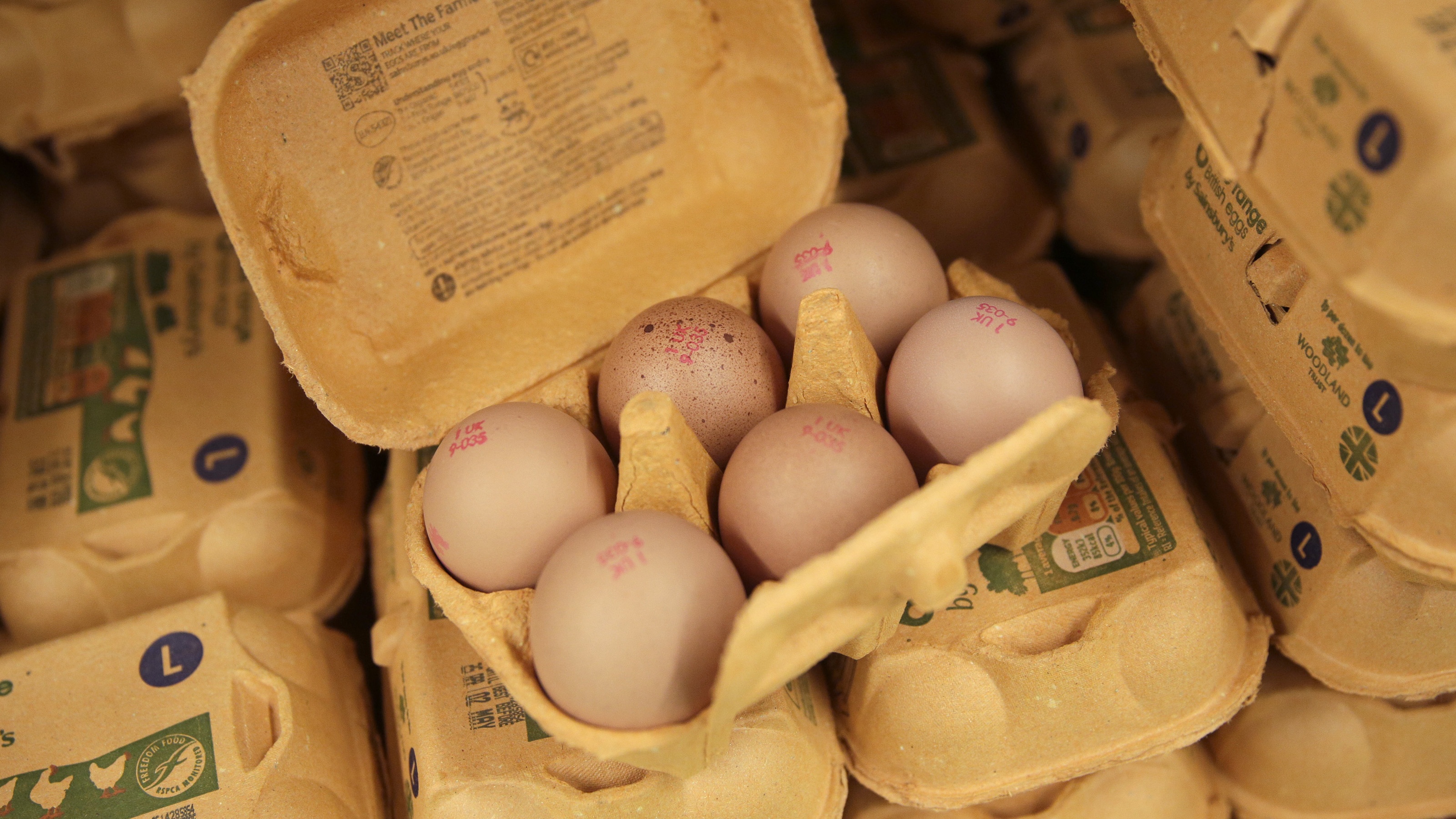 The UK’s Christmas egg shortage
The UK’s Christmas egg shortagefeature Supermarkets blame bird flu but farmers say unfair buying practices are driving them out of business
-
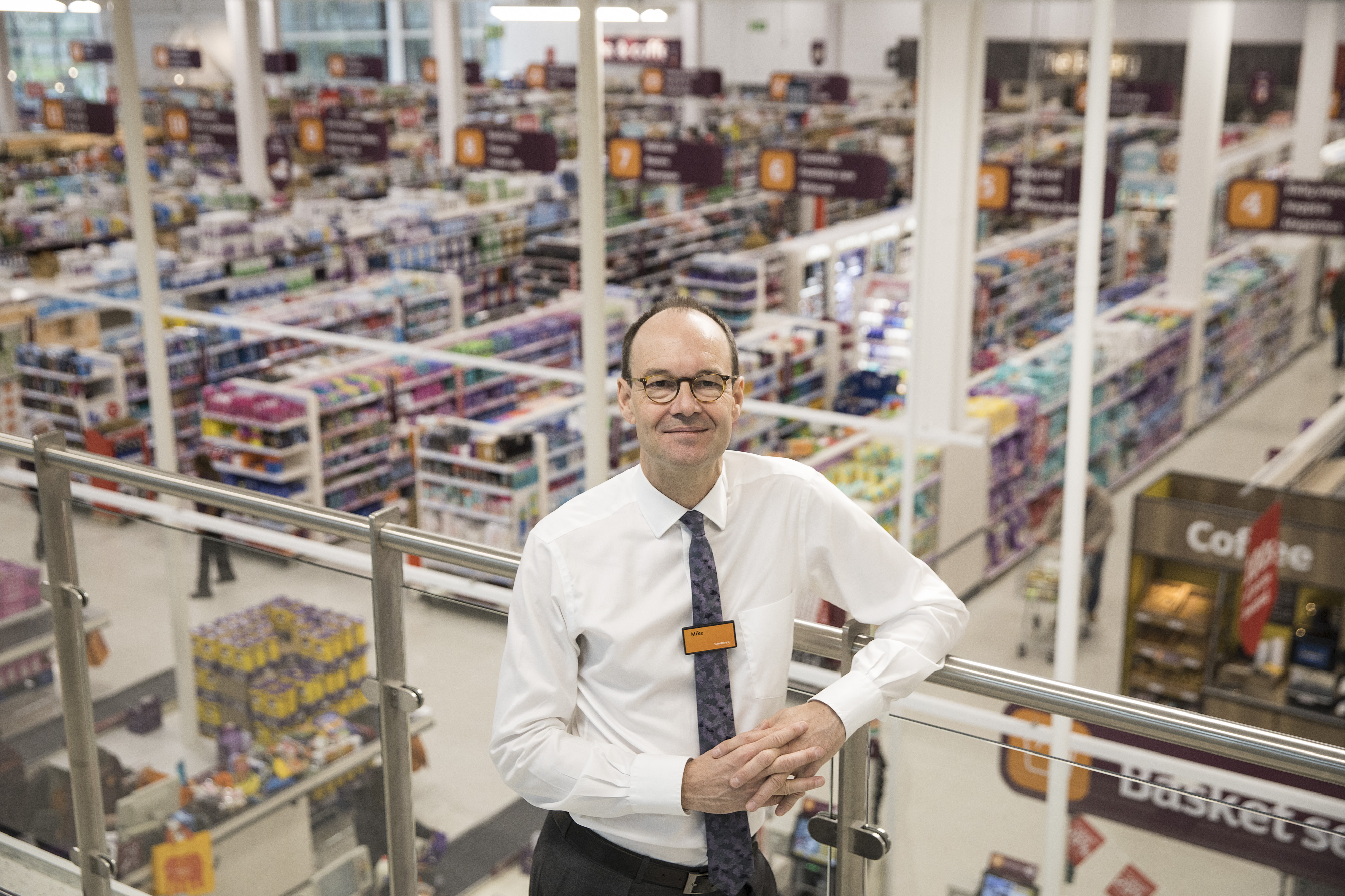 Why Sainsbury’s chief Mike Coupe is stepping down
Why Sainsbury’s chief Mike Coupe is stepping downIn Depth The executive aggressively cut costs to compete with Aldi and Lidl, but failed to acquire Asda
-
 Sales of Christmas puddings down on 2018
Sales of Christmas puddings down on 2018Speed Read Supermarket data shows slump in demand for festive food
-
 Should supermarkets stop selling fireworks?
Should supermarkets stop selling fireworks?Speed Read Sainsbury’s bans the bangers from all of its stores in response to fears for pets
-
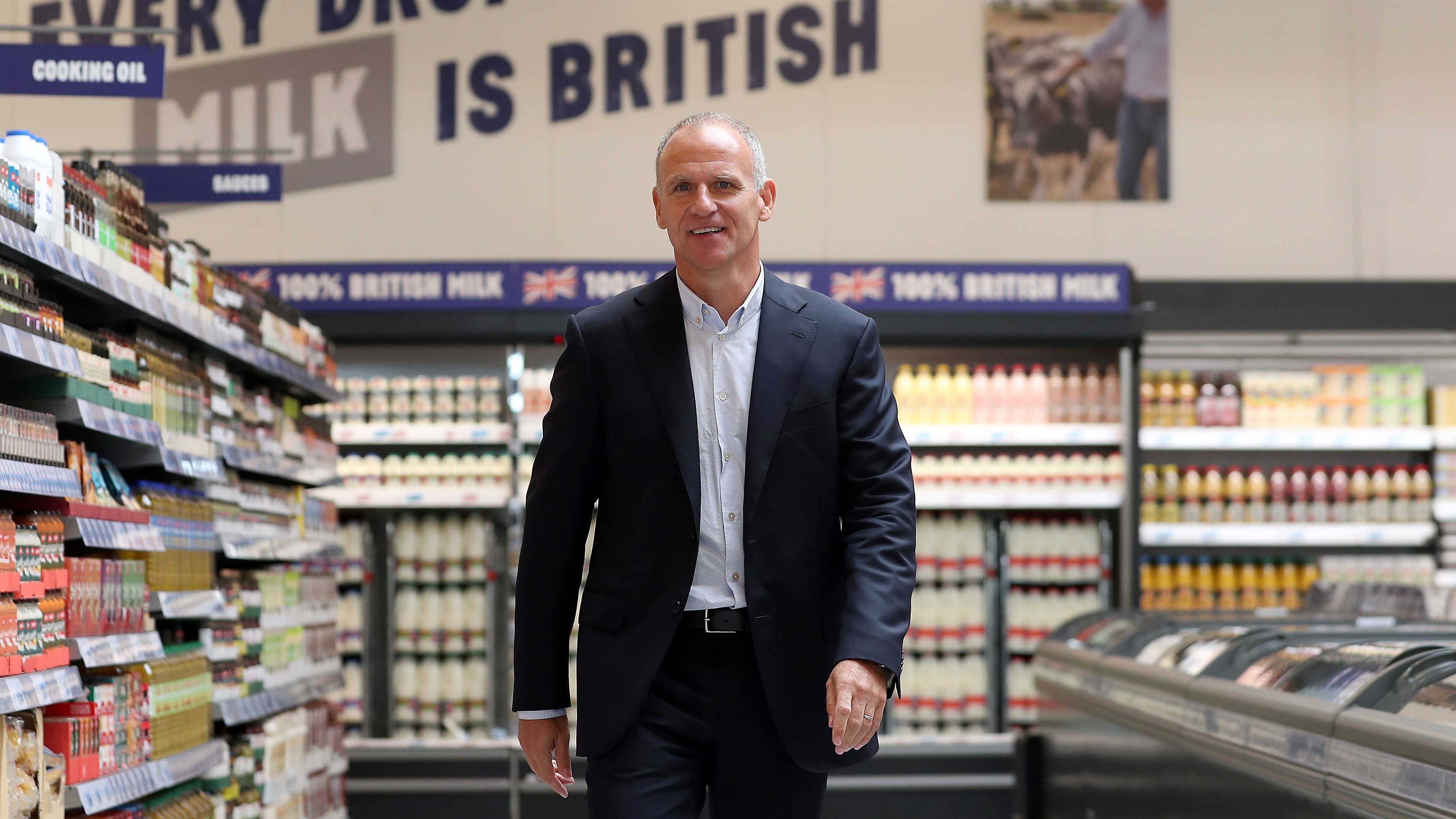 Why Tesco’s Dave Lewis is stepping down
Why Tesco’s Dave Lewis is stepping downSpeed Read The boss who turned Tesco’s fortunes around will leave CEO role in 2020
-
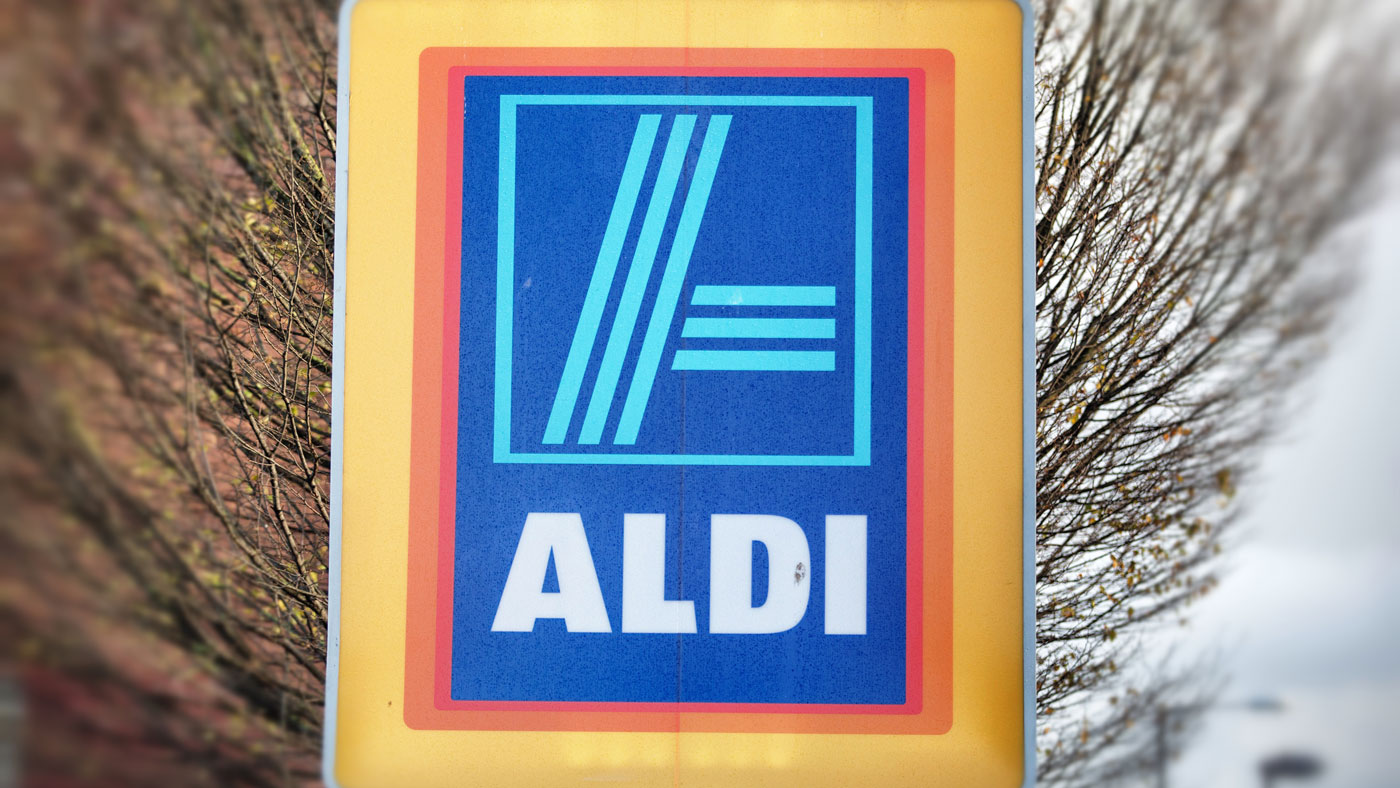 Why are profits collapsing at Aldi?
Why are profits collapsing at Aldi?Speed Read German discounter announces aggressive expansion despite sinking profits
-
 Why are supermarket sales flat?
Why are supermarket sales flat?Speed Read Brexit, fears of recession and price rises blamed for weak data
-
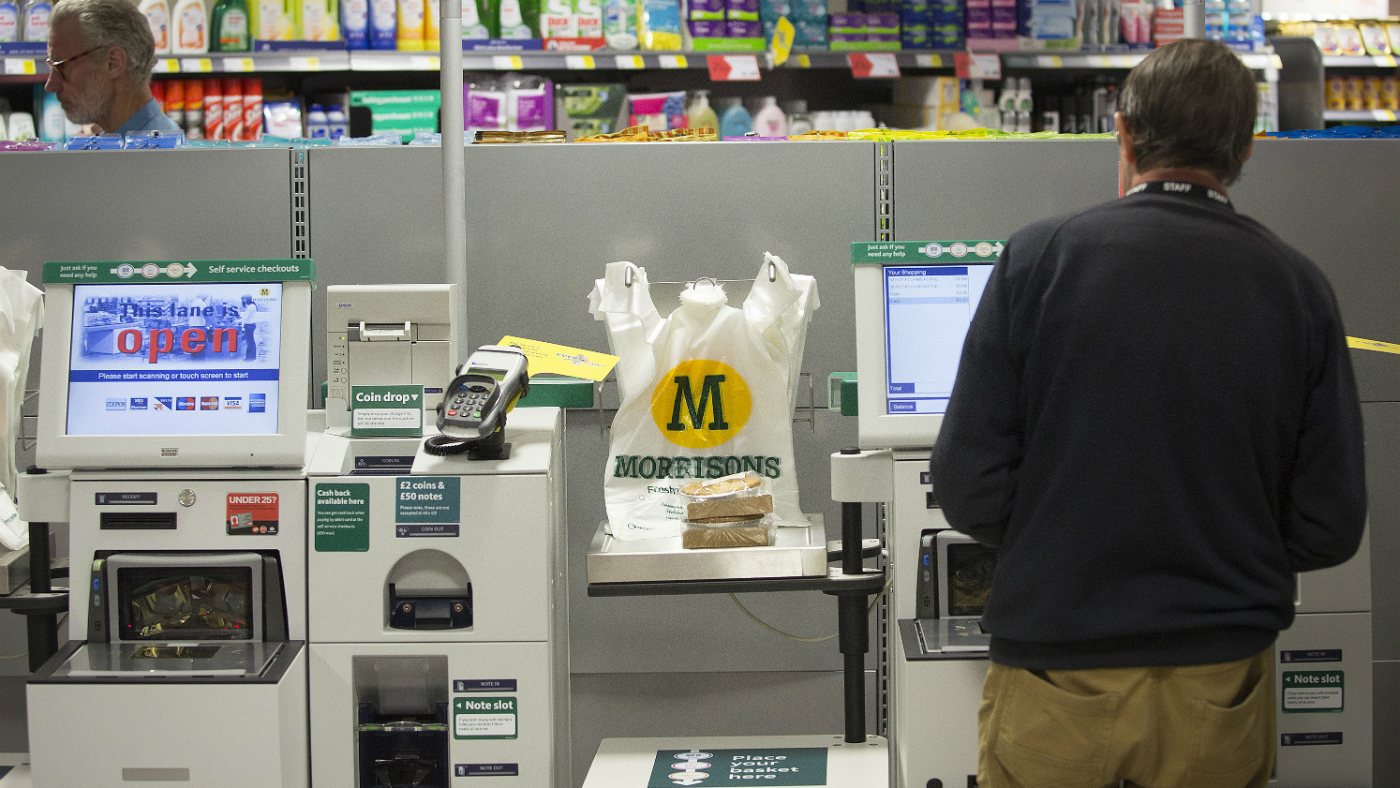 Will shoppers be charged for using self-service machines?
Will shoppers be charged for using self-service machines?In Depth MPs say 1p fee for using self-scan tills could raise £30m a year to ‘heal social divisions’